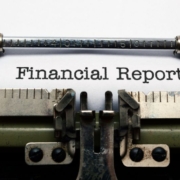If you are Buying a Company are you taking these Due Diligence Steps?
If you plan to buy a company, the due diligence process is probably the most important aspect of the entire transaction.
Due diligence research and analysis ensures a buyer is confident in the true value of the company and how this relates to the price of the company for sale.
Below are the major elements that should be studied during the due diligence process:
Company capitalization
How much is the company worth in today’s market place? Are shares publicly available and if so, which stock exchange do they trade on?
Revenue, Profit and Margin
What are the company’s figures for at least the last three years? Get information from earlier years if possible.
Has revenue grown year on year? Are profits steady or sporadic? Are profit margins consistent with the industry norm? These are just some of the questions which will be asked during the due diligence process.
Industries and Competition
In what industry (or industries) does the company compete? What are the major trends in these industries? Are there threats or opportunities in these industries arising from new regulations, legal class actions, new technology or new competition?
What is the market position (Leader? Follower?) of the company and how do they compare to their major competitors? What are the dominant business models used by the competition and how well does the company execute this model?
Valuation Multiples
Given the price being asked for the company, what is the valuation multiple and how does it compare to the industry average? If there is a large difference between the price being asked and the valuation multiple of the competition, what is the reason? Is it justified?
Ownership and Management
Who actually owns the company? Do the founders still hold stock? Is it a family run business? What is the percentage of shares held by founders and current management? This helps show how much they have invested in the success of the company.
Examination of Balance Sheet
Use a financial expert to help analyse the balance sheet. Understand the assets, liabilities, cash flow position, debt levels and other key indicators to the financial health of the company.
Stock History, Options and Dilution
How has the stock price performed over the last 10 years? How does the market perceive the company and how is this reflected in the stock price?
Do current stock owners have options to sell stock? Is the company committed to issuing more stock in the near future?
Risks to the Company
Are there any specific risks, legal cases, regulatory concerns or competition issues that threaten the company? Consider all aspects of the business.
Something to remember as part of due diligence is that in the first instance it is simply an information gathering exercise and not one that requires any judgements to be made. Keep an objective mind to the information collected and undertake a full analysis when you have collected all the data you need.
Completing a full due diligence process will ensure you have the best possible understanding of a company’s potential.
We recommend you download a free due diligence checklist from www.due-diligence-checklist.net to ensure you have asked all the questions above (and more).







